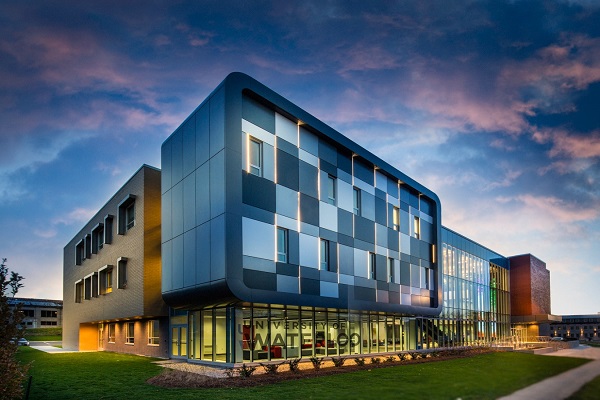European Physical Society Honors University of Waterloo’s Cosmological Survey Collaborations
The SDSS/BOSS/eBOSS collaborations have been awarded the 2023 Giuseppe and Vanna Cocconi Prize of the European Physical Society, recognizing an outstanding contribution to particle astrophysics and cosmology in the last 15 years.
Waterloo professor Will Percival and colleagues Kyle Dawson (University of Utah) and Daniel Eisenstein (Harvard University) accepted the award on behalf of the collaborations.
 Percival has played a central role in the Sloan Digital Sky Survey (SDSS), Baryon Oscillation Spectroscopic Survey (BOSS), and extended Baryon Oscillation Spectroscopic Survey (eBOSS) for more than 15 years. Since 2018, he has been jointly appointed at the University of Waterloo, where he leads the Waterloo Centre for Astrophysics, and at the nearby Perimeter Institute for Theoretical Physics.
Percival has played a central role in the Sloan Digital Sky Survey (SDSS), Baryon Oscillation Spectroscopic Survey (BOSS), and extended Baryon Oscillation Spectroscopic Survey (eBOSS) for more than 15 years. Since 2018, he has been jointly appointed at the University of Waterloo, where he leads the Waterloo Centre for Astrophysics, and at the nearby Perimeter Institute for Theoretical Physics.
“It’s very rewarding to see the incredible influence of these surveys being recognized in this way,” says Percival. “They have provided some of the most significant advances in cosmology in recent decades, greatly improving our understanding of an 11-billion-year period in cosmic history. This work involved hundreds of scientists spanning the globe and it was an honour to accept the Cocconi Prize on their behalf.”
The SDSS/BOSS/eBOSS collaborations created a more detailed three-dimensional map of our universe than ever before, including measurements of more than two million galaxies and quasars. This allowed for an improved understanding of the large-scale structure of the universe from a billion years after the Big Bang until today.
The award’s selection committee specifically lauded the SDSS/BOSS/eBOSS collaborations “for their outstanding contributions to observational cosmology, including the development of the baryon acoustic oscillation measurement into a prime cosmological tool, using it to robustly probe the history of the expansion rate of the universe back to one-fifth of its age.”
Baryon acoustic oscillations are fluctuations in the density of visible matter in the universe, caused by sound waves from the early universe. The SDSS/BOSS/eBOSS collaborations developed baryon acoustic oscillations into a reliable tool for measuring the accelerated expansion of the universe. The selection committee also noted the collaborations’ contributions to our understanding of dark energy, the Hubble constant, and neutrino masses.
“We’re extremely proud of Will and his role in the success of the SDSS/BOSS/eBOSS collaborations,” says Robert Myers, Perimeter director. “We’re also confident that he will continue to make important contributions to the next generation of cosmological surveys through his involvement with the Dark Energy Spectroscopic Instrument and the Euclid satellite mission which launched last month.”
The Cocconi Prize was presented on August 21 as part of the European Physical Society Conference on High Energy Physics, hosted jointly between the German Electron Synchrotron (DESY) and the University of Hamburg.

